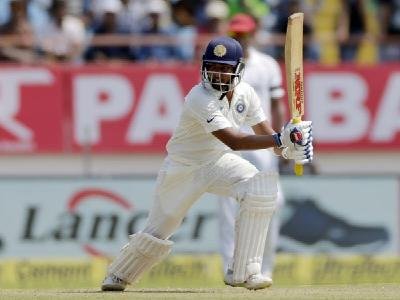[EXPLAINED] What does decision of BCCI coming under ambit of NADA imply?
The Board of Control for Cricket in India (BCCI) on Friday finally came under the ambit of the National Anti-Doping Agency (NADA) thereby ending years of objection to government interference. The decision was announced after BCCI chief executive Rahul Johri and general manager (cricket operations) Saba Karim met sports secretary Radheshyam Jhulaniya and NADA director general Navin Agarwal in New Delhi on Friday.
A meeting was held in New Delhi between after the sports ministry had written a letter to the Indian board, having held the clearances for touring South Africa 'A' and women's teams.
"We have to follow the law of the land and the BCCI is committed to following the law that exists," Johri was quoted as saying by Press Trust of India after the meeting. "The letter which we have signed states that we accept the law of the land
[EXPLAINED] What does decision of BCCI coming under ambit of NADA imply?
Updated Aug 10, 2019 | 09:36 IST | Times Now DigitalEnding years of resistance, the Board of Control for Cricket in India (BCCI) on Friday finally came under the ambit of the National Anti-Doping Agency (NADA).Prithvi ShawPhoto Credit: AP File photo of Prithvi Shaw
Key HighlightsBCCI on Friday came under the ambit of the National Anti-Doping Agency (NADA)Samples of all cricketers can be collected by NADA during domestic tournaments including the age-group eventsMany top players reckon that this decision might lead to a breach of privacy and pose a threat to personal security
The Board of Control for Cricket in India (BCCI) on Friday finally came under the ambit of the National Anti-Doping Agency (NADA) thereby ending years of objection to government interference. The decision was announced after BCCI chief executive Rahul Johri and general manager (cricket operations) Saba Karim met sports secretary Radheshyam Jhulaniya and NADA director general Navin Agarwal in New Delhi on Friday.
A meeting was held in New Delhi between after the sports ministry had written a letter to the Indian board, having held the clearances for touring South Africa 'A' and women's teams.
"We have to follow the law of the land and the BCCI is committed to following the law that exists," Johri was quoted as saying by Press Trust of India after the meeting. "The letter which we have signed states that we accept the law of the land."
What does the decision imply?
Samples of all cricketers can be collected by NADA during domestic tournaments including the age-group events.
However, NADA cannot collect samples during any of India's bilateral series unless instructed by the apex body, International Cricket Council (ICC). During these matches, which are part of ICC's Future Tour Programme (FTP), the apex council can continue with their arrangement with Sweden-based lab International Dope Tests and Management (IDTM) to collect samples. Or else, ICC can ask NADA to come and test the players but only after informing BCCI. On the other hand, the World Anti-Doping Agency (WADA) can ask ICC to authorise the Indian body to collect samples instead of IDTM.
NADA cannot collect samples during ICC events in India.
It is ICC's right to get players tested bt IDTM or NADA.
